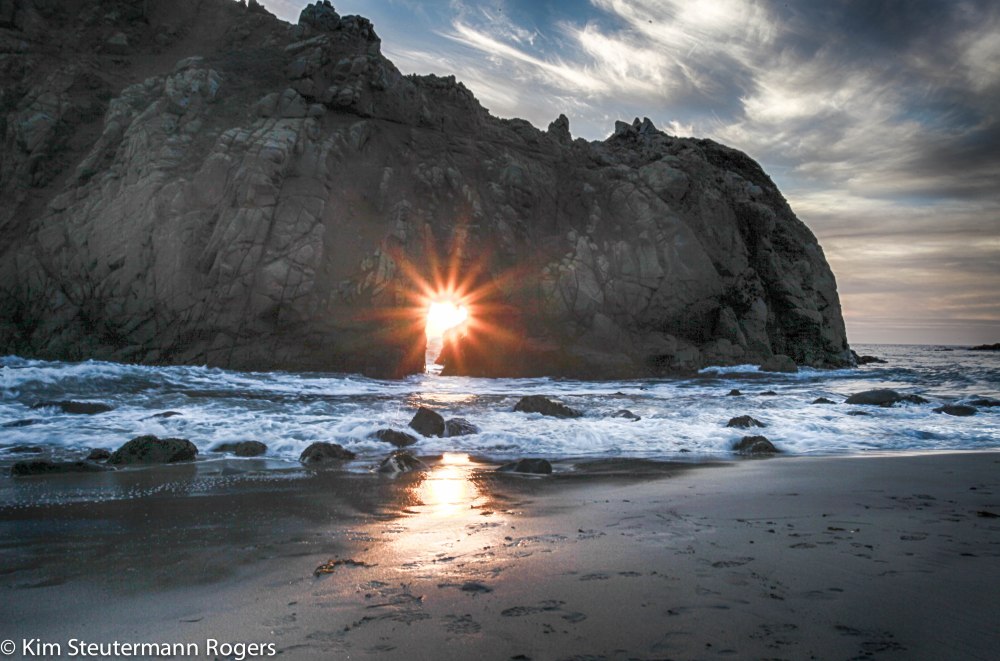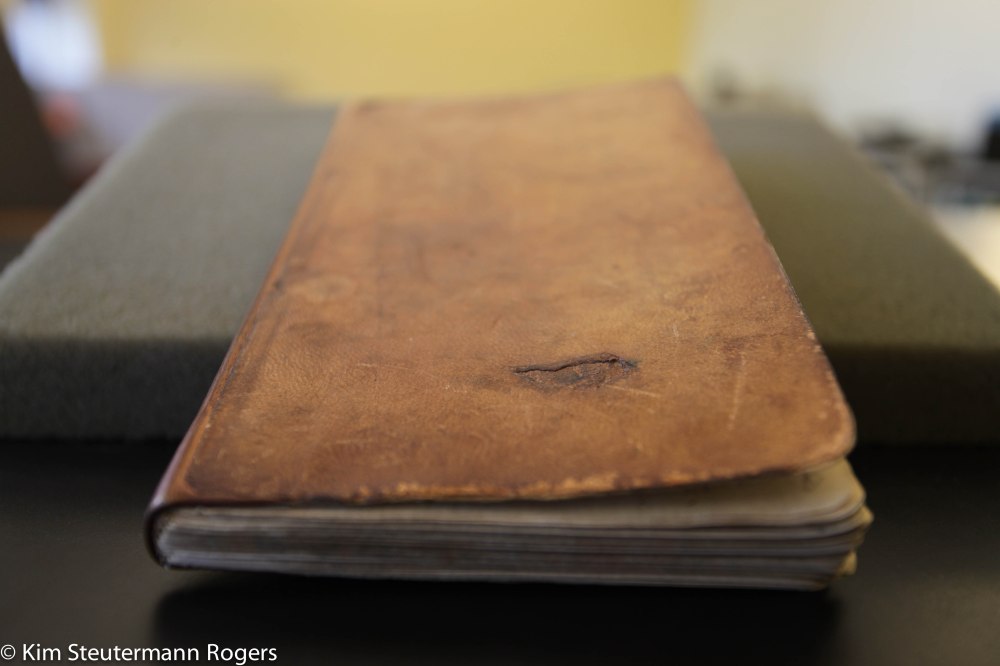
I’m sitting in a bed-sized window seat overlooking Sycamore Canyon in Big Sur, California, in a friend’s barn. Through an octagon-shaped window, I can see the famous Big Sur coastline, as well as, the occasional deer that roams by. In addition to deer, crows and vultures catch my eye. Sometimes, it’s the neighbor dog—a shih tzu wearing a camouflage hoodie—that distracts me from what I’m here to do: write.
Last weekend, I flew to Oakland to attend The Latest in Longform: The Berkeley Narrative Journalism Conference. And while I was there, I popped in the Mark Twain Papers & Project to do a little research.
Of course.

There are fewer finer places to be in my mind than a library. And the archives of Mark Twain’s private papers at Berkeley are housed in special, security-controlled offices within Bancroft Library on the University of California campus. Next to libraries, college campuses are my favorite places to hang out.
So, I was happy.
And while there were numerous tidbits directly related to my research that I found delightful, another discovery I made keeps surfacing in my mind. And I find it encouraging.
Spending a weekend with editors of the New York Times Magazine and the New Yorker, along with such accomplished writers as Adam Gopnik and Jacqui Banaszynski and Cynthia Gorney and Tom Curwen and John Gravois can be, at once, inspiring and intimidating. One minute you’re thrilled to be invited into the creative process of greatness. “Oh, so, that’s how they do it,” you think. The next you’re feeling the bar for greatness is much too far out of your reach. “I don’t know why I bother,” you think.
In this case, the “you,” of course, is “me.”
But, then, I discovered that Mark Twain—perhaps, America’s greatest writer of all time—left 600 literary manuscripts unpublished (and many unfinished) by the time he exited this world in 1910.
Let me say that again, The Master died with 600 manuscripts that were never published. Of course, I don’t know why—whether an editor rejected them or, perhaps, Twain hadn’t bothered to send them out. Maybe it was Twain who decided the manuscripts weren’t ready for publication. It doesn’t really matter why they didn’t get published. The point is they didn’t. The Master had unpublished work. Six hundred manuscripts, no less. I suppose the reason why this brightens my day after an inspiring and intimidating weekend is that it takes the pressure off me. Twain wasn’t perfect every time. And I won’t be either. But I keep writing.

I love your article about the conference and twain. Adam Gopnik indeed.
Xox Diane
Sent from my iPhone
>
LikeLike
Thanks, Diane. Adam Gopnik was a true delight.
LikeLike
Your article delights me, Kim. James Joyce has done for me what Twain seems to have done for you. I read Stephen Hero and then A Portrait and was inspired by how his writing had evolved from the SH to Portrait.
LikeLike
It’s always comforting to see how the masters improved their craft over time, isn’t it, Catherine?
LikeLike
Sweet.
LikeLike
Thanks, Pammy.
LikeLike
Love hearing your inner voice – perhaps it is the curse of all writers – we write because we must – but then read something truly worthy and wonder “Am I just a hack? Why am I still doing this?” And then we remember that our voice is unique (though to me, it often does not seem so.) So we do it again. And again. thanks for this.
LikeLike
Exactly, Lynette. And sometimes even when we don’t remember that our voice is unique, we feel this compulsion to write something anyway, and our hand takes possession over our minds and just starts scribbling and we sorta disappear from the physical plane for a bit and we lose time and we are happy and we wind up with some words on the page that sometimes make sense. Sometimes not;-) Not that it matters.
LikeLike
Kim, your photography is amazing. ~Tim
LikeLike
Thanks, Tim!
LikeLiked by 1 person